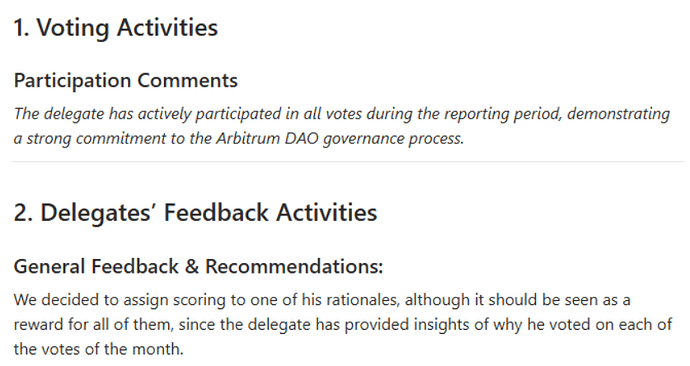Proposal: [CONSTITUTIONAL] AIP: Security Council Election Process Improvements
Vote: Increase Cohort Duration, Allow members to rotate keys, Reduce Qualification Thresold, Allow Candidate to rotate keys
Rationale: We supported nearly the full set of proposed changes in this snapshot, with the exception of “Allow members to bypass Nominee.”
Extending cohort terms and lowering entry thresholds both feel like sensible steps to keep governance stable while also opening the door to a wider pool of candidates. Likewise, adding rotation mechanisms strengthens accountability and reduces key-person risk, an important safeguard as the Council matures.
Where we differ is on skipping the Nominee stage for sitting members. Even experienced members benefit from re-establishing their mandate with the DAO, and the suggested shortcut doesn’t strike us as necessary.
Proposal: Revert the Delegate Incentive Program (DIP) to Version 1.5
Vote: Revert the DIP to 1.5v, Sunset the DIP, Keep the current version, Abstain
Rationale: We will support reverting the Delegate Incentive Program back to the v1.5 framework.
We still see the DIP as a valuable initiative. It has encouraged more active governance, and we’d like to see it continue as a way to support delegates who invest their time and energy into the DAO. In our view, what’s needed most now is stability and inclusivity, rather than ending the program altogether.
Some of the challenges started in v1.6 with the introduction of the voting power multiplier. While the intention was understandable, in practice it has made it harder for smaller or newer delegates to participate on equal footing. Even with a perfect participation record, a delegate at the minimum threshold faces more challenges in scoring as highly as a large delegate, which creates a structural imbalance that has carried into v1.7.
The rubric scoring in v1.6 has also been tricky. It isn’t always clear how one score differs from another, which can feel subjective at times. Strong contributions in one or two areas can be pulled down by weaker scores elsewhere, and a single disputed point may reduce the value of otherwise thoughtful contributions. That can leave delegates uncertain about how their work is being recognized.
This has been especially noticeable for smaller delegates. For example, we’ve put effort into providing rationale and detailed feedback on proposals, but ended up with the same score as delegates who simply posted what they were going to vote with only brief rationale. Even though neither of us received incentives in those cases, the averaging system still pulled our overall ranking lower, which was discouraging given the extra effort.
We also feel that the VP multiplier makes it harder for newer or smaller delegates to participate meaningfully. Without it, our contributions earlier this year would have placed us consistently in Tier 3. Instead, it has become clear that the structure makes participation less balanced. This isn’t just our own experience, the number of active delegates receiving rewards has noticeably dropped since the changes.
We believe v1.5 offered clearer and more transparent rules, which made it easier for delegates to understand how their work was valued. Returning to that framework would restore a more level playing field and allow the DAO to continue exploring improvements from a stronger baseline.



